Lucy Letby wept repeatedly in the arms of a close colleague as she tried to cope with allegations that she was harming babies in her care, a powerful TV documentary will reveal tonight.
She had been banned from nursing and sidelined in a backroom job after hospital consultants suggested she was ‘purposely harming babies’.
At the time, one senior nurse expressed shock at the claims, saying Letby’s clinical practice as a neonatal nurse was ‘second to none’.
She was often accused of being cold and unfeeling during her trial for murder. But she was in fact devastated by the accusations against her, according to Karen Rees, former head of urgent care nursing at the Countess of Chester Hospital where she worked.
The bitter, tearful scenes followed suggestions made by consultants at the hospital that Letby was doing harm. ‘She was broken, cried regularly in my arms and in my office, and her mantra to me was, ‘Why are they doing this to me? I’ve done nothing wrong’,’ said Ms Rees.
The show also reveals another friend was so sure of her innocence that she sought permission from the authorities to invite Letby to her wedding while she was on bail.
Letby was convicted in 2023 of murdering seven babies and attempting to murder seven others.
She was sentenced to die in prison. But since then there has been a growing clamour among expert doctors, scientists and statistics experts, who say her trial was unfair, that there are serious doubts about prosecution evidence and that the case should be reopened.
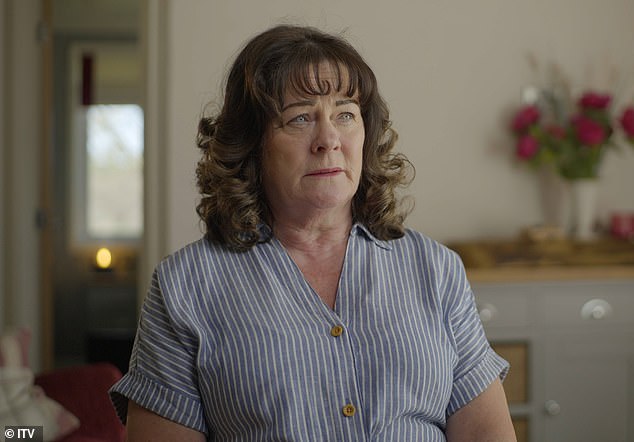
Lucy Letby was devastated by the accusations against her, according to Karen Rees (pictured), former head of urgent care nursing at the Countess of Chester Hospital where Letby worked
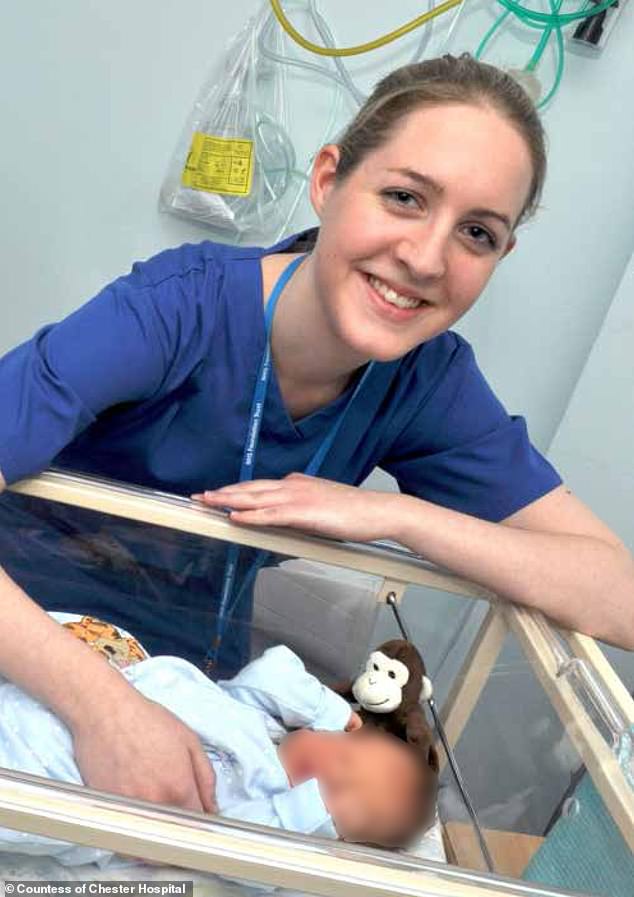
Letby (pictured) was convicted in 2023 of murdering seven babies and attempting to murder seven others
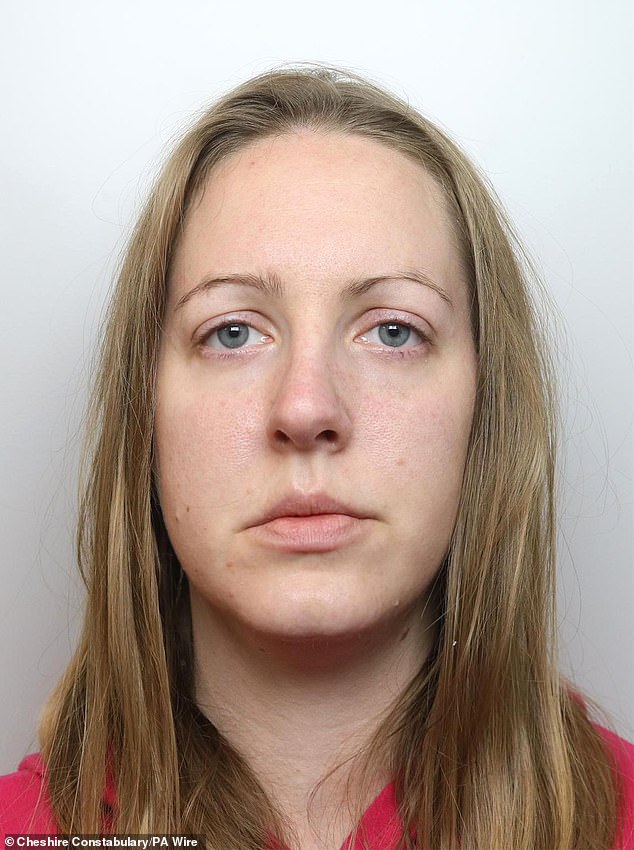
Letby (picturd) was sentenced to die in prison. But since then there has been a growing clamour among expert doctors, scientists and statistics experts, who say her trial was unfair
Tonight’s programme describes how the nurse had believed she had good working relationships with the consultants who denounced her. She was devastated that they thought what they thought.
Ms Rees, in her first TV interview, revealed she was given the task of breaking the bad news to Letby that she was being removed from the job she was trained for – the care of newborns – and confined to a humiliating desk job in a back office.
Letby had to pretend to colleagues that this was her choice. Ms Rees said: ‘I was told just to say that concerns had been raised, and that this was seen as a neutral act.
‘She was not being accused of anything at this point. But it seemed safer to take her off clinical practice to protect herself as well as babies on that neonatal unit.’
As she was led away from the unit where she had worked, Letby did not even question the decision. ‘She was just looking at me,’ added Ms Rees. ‘I then had to walk her across the hospital grounds. I was the only one making conversation. She wasn’t asking me why. She wasn’t crying. She was just shocked.’
But, said Ms Rees, she cried a lot later. Eventually, after police became involved, Letby was prescribed antidepressants which often suppress moods and emotions. She told her trial in May 2023 she was still taking them and that she had considered suicide at the time she was removed from her job.
Ms Rees recalled how Letby once told her: ‘You’re the only person that hasn’t asked me, ‘Have I purposely harmed anybody?’.’
She said: ‘The reason why I never asked her is that I never thought she had. No. I didn’t, I don’t believe it.’ Her revelations are one of several dramatic moments in the documentary Lucy Letby: Beyond Reasonable Doubt? to be shown on ITV this evening.
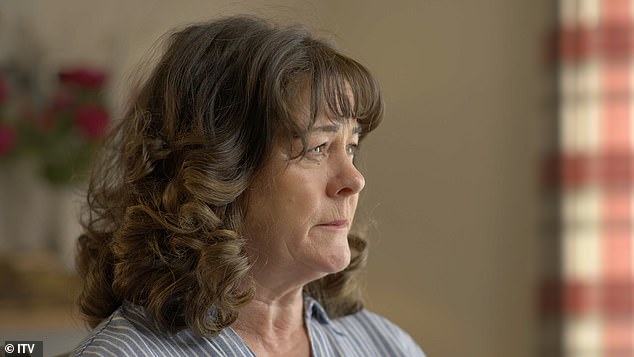
Ms Rees (pictured), in her first TV interview, revealed she was given the task of breaking the bad news to Letby that she was being removed from the job she was trained for – the care of newborns – and confined to a humiliating desk job in a back office
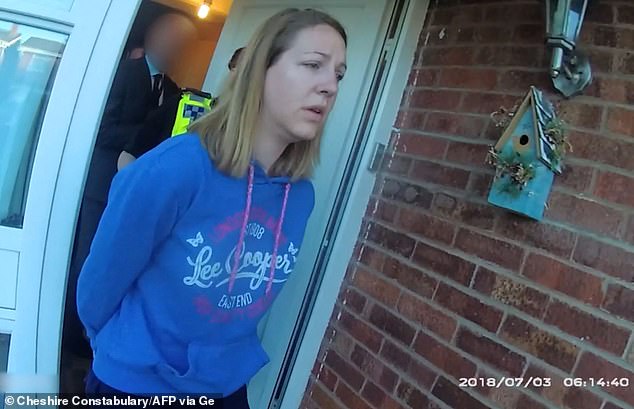
Pictured: the moment Letby was arrested at home in Chester on July 3, 2018
Also interviewed for the show is Dawn – who did not wish her surname to be used. She is a close childhood friend of Letby who has stood by her despite her conviction and is convinced of her innocence.
The programme reveals she is so sure that Letby is blameless that she invited the accused nurse to attend her wedding while she was on bail.
Dawn also undermines claims that scribbled notes found in Letby’s house were any sort of confession. She reveals that, at sixth form college together, both trained in peer-support counselling and learned of a common method to deal with anxieties – to write down your worst fears and feelings.
‘If you’re feeling overwhelmed, you write down everything that’s going through your mind,’ she said. And this is what Letby did when undergoing counselling arranged for her by the hospital. Dawn recalled her reaction when she learned her friend was being accused: ‘I watched it all unfold and every step of the way I couldn’t believe it.’
In her darkest moments she wondered if Letby had perhaps inadvertently caused harm, because she was newly-qualified and under heavy pressure. But that was the limit of what she could believe.
Dawn was at work when she heard the guilty verdicts and said she could not take them in.
‘I sat there dumbfounded for a while, not really knowing how to process what I was hearing. I didn’t think it was real. I immediately switched to thinking what happens next? This can’t be it, she can’t just spend the rest of her life in prison. I’m living a life that Lucy should be living beside me.
‘We should both be having families. We’d both bought our houses, and we were looking forward to the next chapter of our lives – and then all this happens. There’s so much guilt that I’m living a life that Lucy should also be living.’
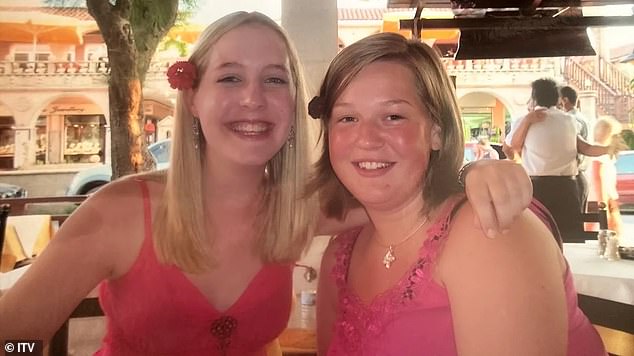
Also interviewed for the show is Dawn – who did not wish her surname to be used. She is a close childhood friend of Letby who has stood by her despite her conviction and is convinced of her innocence. Pictured: Dawn and Letby
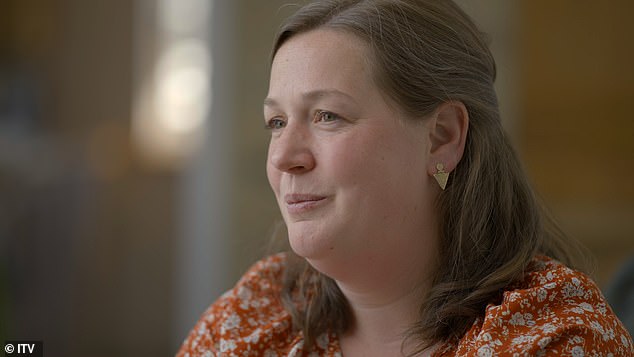
Dawn (pictured) was at work when she heard the guilty verdicts and said she could not take them in
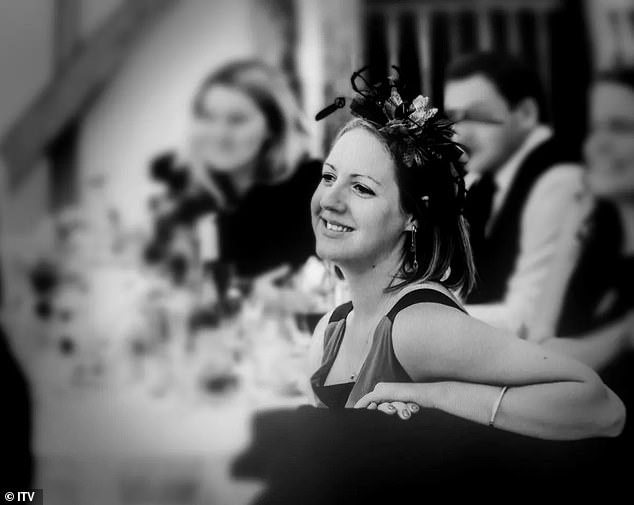
Lucy Letby at the wedding of Dawn, a close childhood friend who was so convinced of Letby’s innocence that she arranged for her to be there
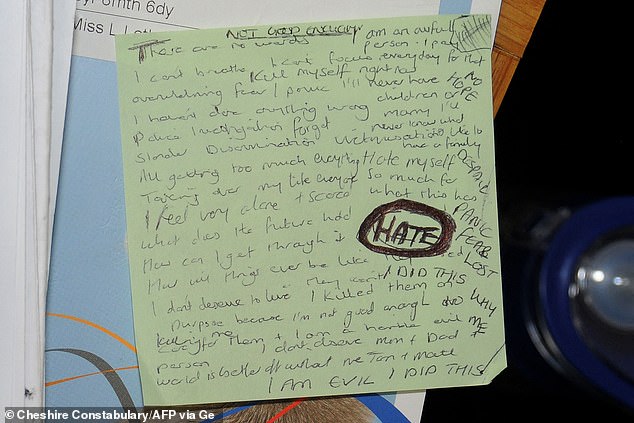
Dawn also undermines claims that scribbled notes (pictured) found in Letby’s house (pictured) were any sort of confession
The striking loyalty of a lifelong friend and a senior colleague are not the only elements of the programme, produced by Anouk Curry, which will shake the beliefs of many in Letby’s guilt.
It also provides a devastating counter to prosecution claims that babies on the unit were poisoned with insulin.
Many on the prosecution side viewed this as the nearest they had to a ‘smoking gun’ in a trial which lacked any hard evidence.
The ‘immuno-assay’ test used to make this claim was useless for the purpose, according to Matt Johl, an American expert in chemistry and forensic science.
‘That kind of test was never meant to put somebody in prison,’ he said. ‘You would not strip a gold medal from an international athlete on an immuno-assay test.
‘It’s not good enough for drug testing pilots, or anyone who has mandatory testing. If it’s not good enough to fire them, how can it be good enough to put someone in prison?’
It also probes the strange contradictions among witnesses. Dr Dewi Evans changed his mind about how Letby was supposed to have killed, when the facts failed to back up his original theory. And Dr Ravi Jayaram did huge damage to Letby’s case with his account of her allegedly failing to act to help a sick baby.
It was even wrongly claimed she was caught ‘virtually red-handed’ in this incident. Dr Jayaram’s version of events was exploded in an email which surfaced long after the trial.
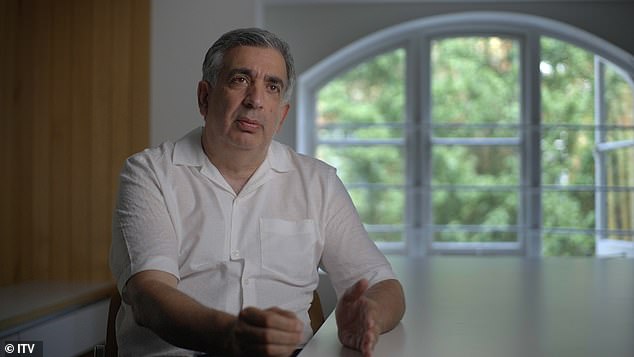
Letby’s new barrister Mark McDonald (pictured) is shown in the documentary being questioned outside the CCRC offices in Birmingham by the Daily Mail’s Liz Hull, who has covered the case from the beginning
Yet he had said in a TV interview that the incident was ‘etched on my memory and would live in my nightmares forever’. The programme is aired as the Crown Prosecution Service considers the possibility of fresh charges against Letby.
The case has been put before the Criminal Cases Review Commission (CCRC), which has the power to order an appeal – the courts have so far refused to hear one.
Letby’s new barrister Mark McDonald is shown in the documentary being questioned outside the CCRC offices in Birmingham by the Daily Mail’s Liz Hull, who has covered the case from the beginning.
Mr McDonald admits to camera that, despite the involvement of some of the most distinguished doctors in the world, who say no crime was committed, an appeal may yet be refused on a technicality – that the objections to the guilty verdict could have been raised at the original trial, so it was not the court’s fault that things went wrong.
He asks: ‘If they dismiss this evidence, to say ‘Well, it could have been called at trial… she’s innocent but we are not going to take any notice of it because they could have done that, so we will let an innocent person stay in prison’ – well, what is the logic of that?’
Professor Neena Modi, a leading expert in the care of newborn babies, concludes: ‘It’s been deeply disturbing that one can have such a high profile and tremendously important trial that seems to have been conducted with so many flaws.’
PETER HITCHENS: Still convinced of her guilt? Watch this brick-by-brick dismantling of the police case
This is old-fashioned, high-quality responsible broadcasting. It is what television was invented for. It is the kind of thing which makes us better citizens.
Very seldom will you see an argument so fairly, fluently and powerfully made. Lucy Letby’s case must surely now be reopened, especially after the contribution of Professor Neena Modi, one of this country’s most distinguished experts in the care of newborns.
She has re-examined the records of the babies who died, and her verdict is devastating. You will wonder what the jury might have concluded if they had heard her testimony.
Is there in fact another explanation of the babies’ deaths? Might they have survived in a better hospital? Is it almost too upsetting to speak it out loud?
Before the spike in deaths which led to the suspicions growing round Ms Letby, the Countess of Chester Hospital had been required to take cases which it was not really equipped or staffed to cope with.
Professor Modi says problems could have been recognised earlier and ‘perhaps for some of the babies the outcomes might not have been what they were’. She describes her discoveries as ‘harrowing’ and ‘deeply distressing’.
She concludes ‘This was a neonatal unit that was being required to look after babies who should not have been cared for there. The babies that we are referring to were all extremely vulnerable.
‘Some of them were demonstrably and recognisably on a knife-edge. Others could have been recognised to have been on a knife-edge. But they were not monitored appropriately and not treated appropriately.
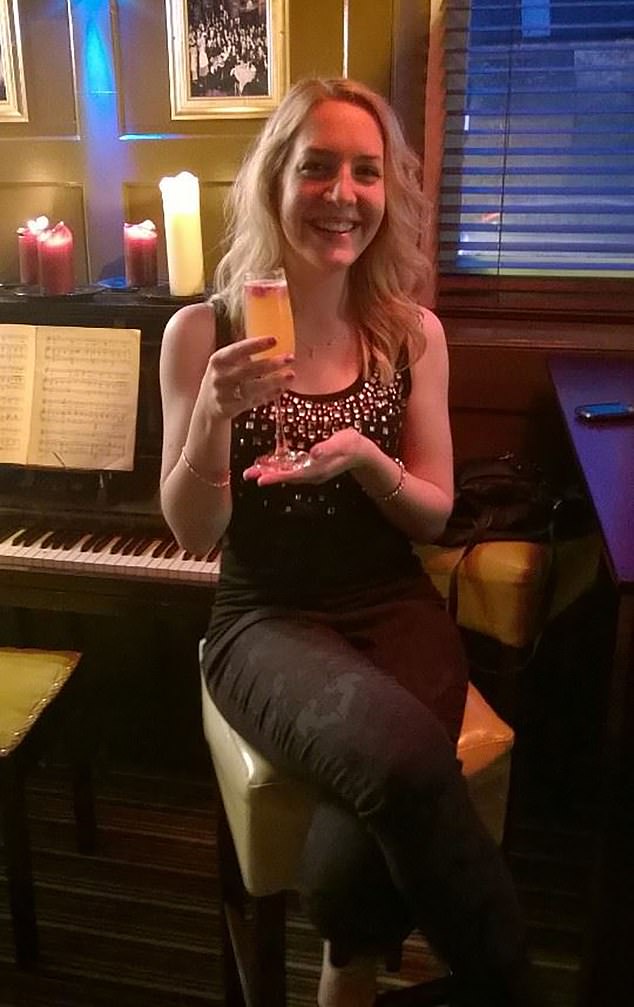
Letby (pictured) in happier times before she was found guilty of murder over the deaths of babies at the Countess of Chester Hospital neo-natal unit.
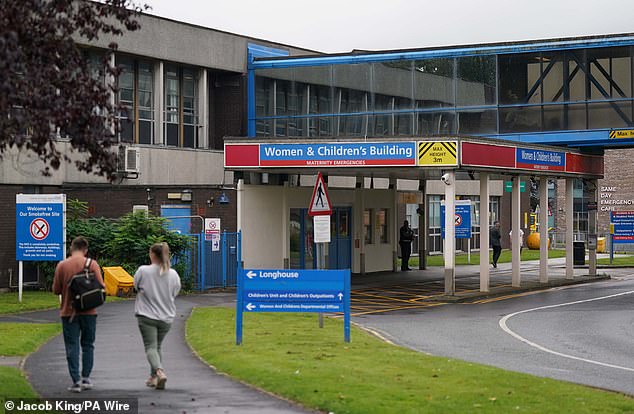
Pictured: the Countess of Chester Hospital where Letby worked
‘Problems went unrecognised until the point at which a baby deteriorated very abruptly… so that the babies might not have died had their difficulties been addressed earlier.’ If this is so, why is Lucy Letby in prison until she dies?
The documentary does not ignore the misery and distress of the bereaved parents. Especially striking is the role, as a sort of guide, of The Guardian’s Northern Editor Josh Halliday, who sat through the entire, gruelling Letby trial.
Josh still looks haunted by what he heard, and beautifully expresses the grief at the core of the whole case – the families who lost their babies. He speaks of ‘the empty car seats, the unpacked hospital bags, the nurseries at home that would never get slept in… You could really feel the anguish and the destruction that it caused in their lives. It broke families apart. It was just shocking and awful’.
Josh started by accepting the prosecution case, but now has serious doubts. He describes his reaction after a panel of internationally renowned doctors concluded no crimes had taken place and so Ms Letby could not be guilty of them: ‘It was like two worlds colliding. It was just jaw-dropping.’
And any viewers who have so far been convinced of Ms Letby’s guilt may feel the same way as they watch the brick-by-brick dismantling of the police case.
Josh also eloquently recalls the astounding moment in the trial when Ms Letby’s original defence offered no expert witnesses to rebut the charges against her.
Now such experts have spoken.
l Lucy Letby: Beyond Reasonable Doubt? is on ITV1 at 10.20pm












